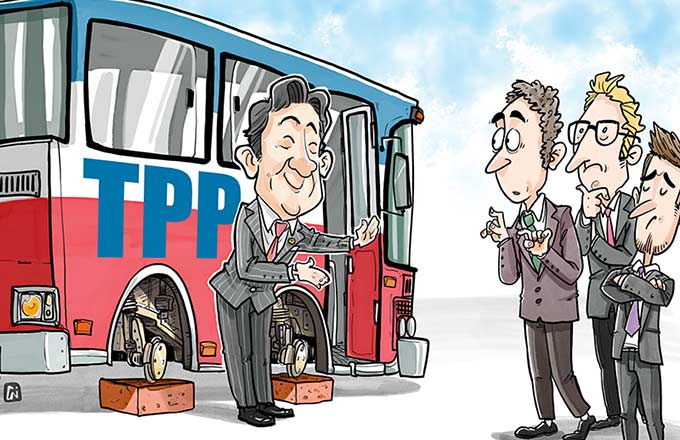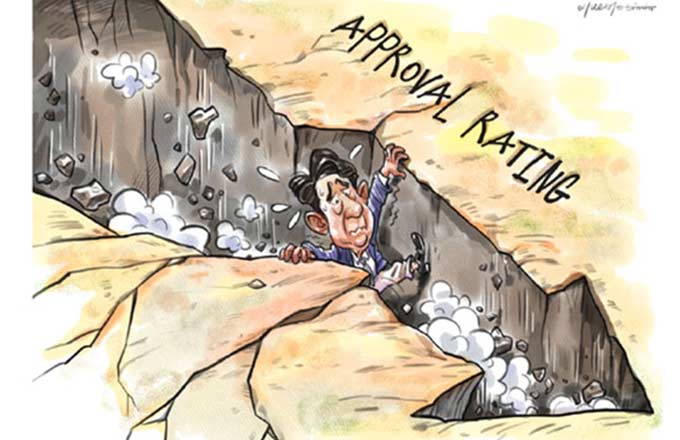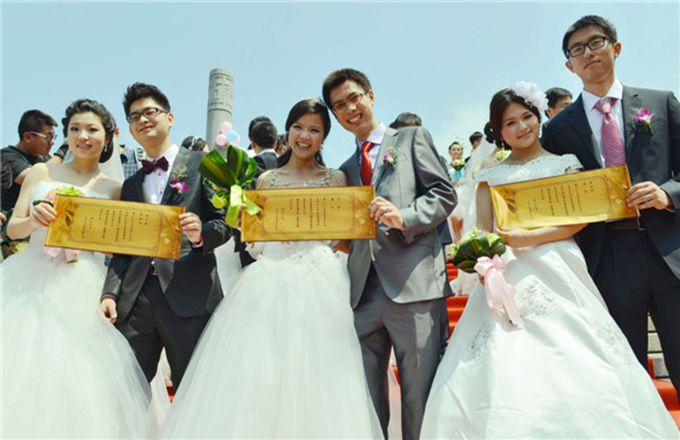Onus on US to take peninsula off the boil
The government of the Republic of Korea has offered to talk with the Democratic People's Republic of Korea to ease animosities along the military demarcation line and resume the reunions of families separated by the Korean War (1950-53). If the talks were to happen they would be the first between the two sides since December 2015.
That there hasn't been a war on the Korean Peninsula since the signing of the Armistice Agreement on July 27, 1953, can perhaps be considered an accomplishment in itself.
However, the rising turbulence in the region over the decades, particularly recently, as a result of the progress the DPRK has made in its nuclear/missile program, has once again highlighted that efforts to negotiate a permanent settlement-which date back to the Geneva Conference in 1954-have all ended in failure.
The fundamental problem has been the division of the peninsula, which was intended as a temporary military expedient at the end of hostilities, and the subsequent desire of both sides of the divide to achieve reunification at the expense of the other.
Neither Pyongyang nor Seoul has been able to pursue its own course in attempting to achieve that goal, because China, Japan, Russia and the United States all have a stake in the developments on the peninsula, as it is an area where their strategic and geopolitical interests converge.
And since the US security commitment to the ROK represents a trip wire that would trigger the involvement of all these outside powers in any military conflict between the two Koreas, the fear of sparking a full-scale war involving these big hitters has acted as a brake on the ambitions of Pyongyang and Seoul to pursue reunification by force. Of course, neither is willing to voluntarily give up its status for the other.
Thus a delicate balance has been maintained, based on the respective support of the outside powers. However, the delicacy of the balance has exacerbated the two Koreas' sense of insecurity, which has led to the DPRK accelerating its nuclear weapons program and the ROK strengthening its military ties with the US; two trends that have become self-perpetuating, and which have accelerated as a result of the US' strategic and military rebalancing to the Asia-Pacific.
For all the Donald Trump administration's talk of an end to strategic patience, consecutive US administrations have looked at a wide range of military options over the decades, including nuclear strikes, and each time concluded that there is none that can achieve the US' desired objectives without provoking retaliation and escalation, and this remains the case today.
The DPRK and the US are the parties directly concerned in the nuclear issue on the peninsula, and they hold the key to resolving it. Beijing has encouraged Washington to make efforts to engage directly with Pyongyang. However, the US' strategic competition with China and Russia means it has been using the DPRK nuclear issue as a means to bolster its alliances with the ROK and Japan, and deploy more military assets in the region.
Thus, despite the US' repeated declarations that China shoulders the responsibility for peace on the peninsula, the onus for that falls on the shoulders of the US. That the US is unwilling to give up its leveraging of the DPRK nuclear issue in its strategic calculations is evident from its reluctance to engage with China's "double freeze" proposal-the simultaneous halting of the DPRK's nuclear missile tests and US-ROK military drills-and the parallel advancement of denuclearization and the replacement of the armistice with a long-overdue peace agreement.
These proposals address the most pressing concerns of the different parties and, along with necessary non-aggression pacts and security guarantees for both Koreas, would create the conditions for an agreement to be reached on cross-recognition on the peninsula.
The ROK's offer of talks, if accepted, would open a window of opportunity to improve relations between Seoul and Pyongyang, and restart the process of seeking reconciliation and cooperation through dialogue.
The international community should make clear its firm opposition to the DPRK's violations of the UN Security Council resolutions, while the US and Japan, instead of saying the necessary conditions have not been met and the time isn't right for talks, should give their support to Seoul's initiative.
The author is a writer with China Daily. hannayrichards@chinadaily.com.cn





















